Introduction #
DeepGlobe 2018 Road Extraction dataset is a part of the DeepGlobe 2018 Satellite Image Understanding Challenge, which includes three public competitions for segmentation, detection, and classification tasks on satellite images:
- Road Extraction Challenge (current): This challenge focuses on automating the extraction of road and street networks from satellite images, particularly in disaster zones and developing countries. The aim is to facilitate automated crisis response and expand map coverage for improved connectivity.
- Building Detection Challenge: With a focus on modeling urban demographics for disaster response and recovery, this challenge involves the automatic detection of buildings from satellite images. This facilitates the remote gathering of urban information and spatial distribution details of urban settlements.
- Land Cover Classification Challenge (available on DatasetNinja): This challenge revolves around the automatic classification and segmentation of land cover types from satellite images. It is crucial for sustainable development, agriculture, forestry, and urban planning.
There have been several datasets proposed in the literature for benchmarking algorithms for semantic segmentation of overhead imagery. Some of these can be enumerated as the TorontoCity dataset, the ISPRS 2D semantic labeling dataset, the Mnih dataset, the SpaceNet dataset and the ISPRS Benchmark for Multi-Platform Photogrammetry. The satellite imagery used in DeepGlobe for the road extraction challenge is sampled from the DigitalGlobe + Vivid Images dataset. It covers images captured over Thailand, Indonesia, and India. The ground resolution of the image pixels is 50 cm/pixel. The images consist of 3 channels (Red, Green, and Blue). Each of the original GeoTIFF images has a resolution of 19584×19584 pixels. The annotation process starts by tiling and loading these images in QGIS. Based on this tiling, authors determine useful areas to sample from those countries. For designating useful areas, authors sample data uniformly between rural and urban areas. After sampling authors select the corresponding DigitalGlobe tiff images belonging to those areas. These images are then cropped to extract useful subregions and relevant subregions are sampled by GIS experts. (A useful subregion denotes a part of the image where authors have a good relative ratio between positive and negative examples.) Also, while selecting these subregions, authors try to sample interesting areas uniformly, e.g., those with different types of road surfaces (unpaved, paved, dirt roads), rural and urban areas, etc. It is important to note that the labels generated are pixel-based, where all pixels belonging to the road are labeled, instead of labeling only the centerline.
The final road dataset consists of a total of 8570 images and spans a total land area of 2220 km². Of those, 6226 images (72.7% of the dataset), spanning a total of 1632 km², were split as the training dataset. 1243 images,spanning 362 km², were chosen as the validation dataset and 1101 images were chosen for testing which cover a total land area of 288 km². The split of the dataset into training/validation/testing subsets is conducted by randomizing among tiles to aim for an approximate distribution of 70%/15%/15%. The training dataset consists of 4.5% positive and 95.5% negative pixels, the validation dataset consists of 3% positive and 97% negative pixels and the test dataset consists of 4.1% positive and 95.9% negative pixels.
Summary #
DeepGlobe 2018 Road Extraction is a dataset for a semantic segmentation task. It is used in the urban planning research. Possible applications of the dataset could be in the geospatial domain and environmental industry.
The dataset consists of 8570 images with 6226 labeled objects belonging to 1 single class (road).
Images in the DeepGlobe 2018 Road Extraction dataset have pixel-level semantic segmentation annotations. There are 2344 (27% of the total) unlabeled images (i.e. without annotations). There are 3 splits in the dataset: train (6226 images), valid (1243 images), and test (1101 images). The dataset was released in 2018 by the Facebook, DigitalGlobe, CosmiQ Works, Wageningen University, and The MIT Media Lab.
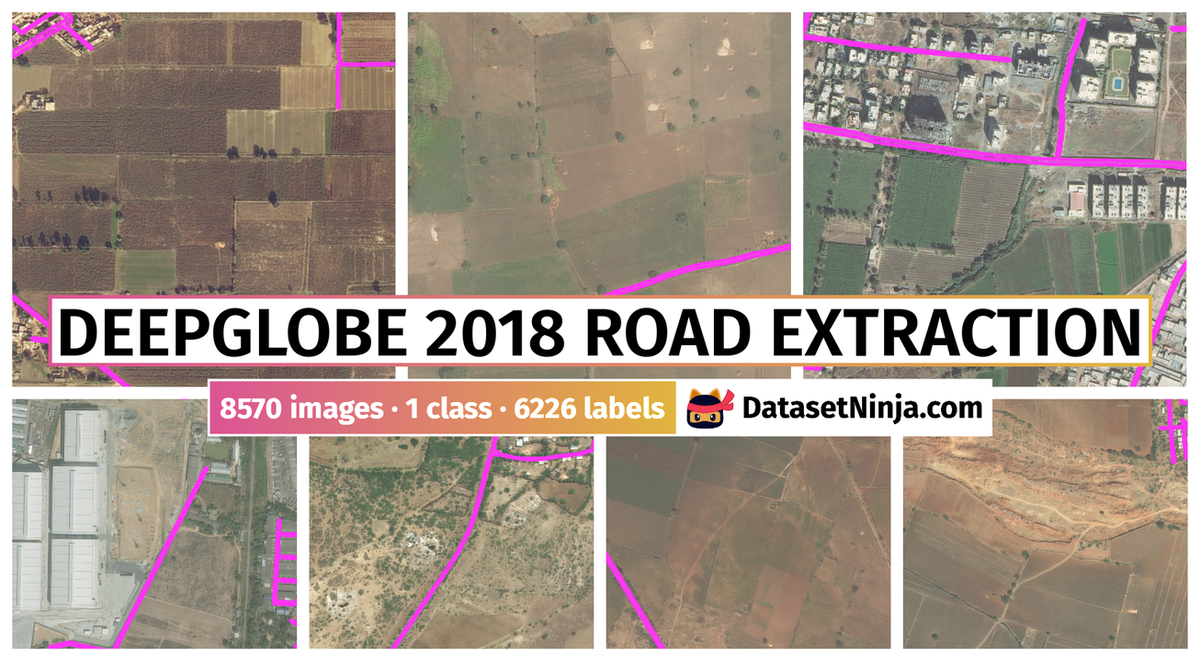
Explore #
DeepGlobe 2018 Road Extraction dataset has 8570 images. Click on one of the examples below or open "Explore" tool anytime you need to view dataset images with annotations. This tool has extended visualization capabilities like zoom, translation, objects table, custom filters and more. Hover the mouse over the images to hide or show annotations.

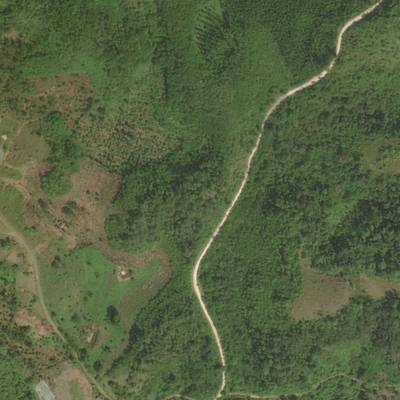

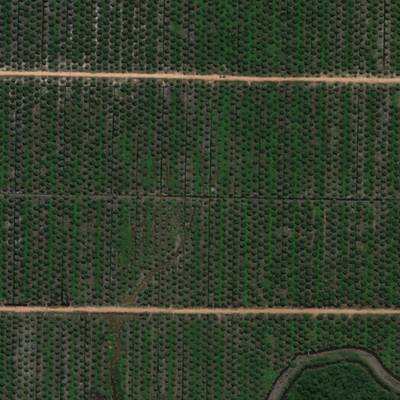

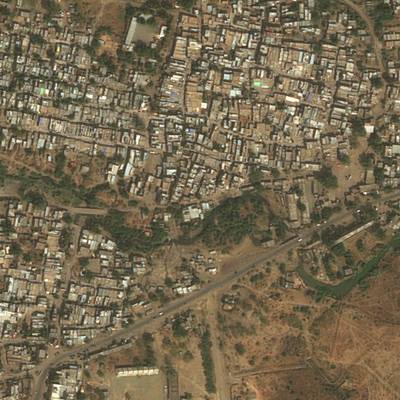

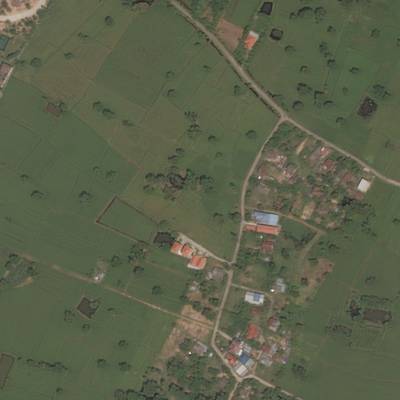

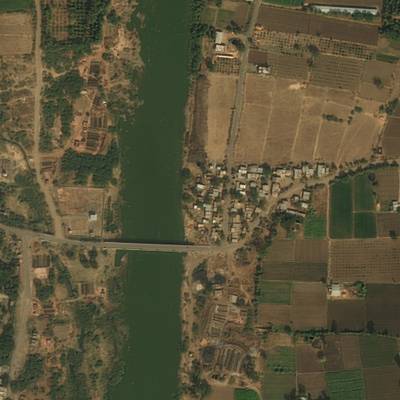

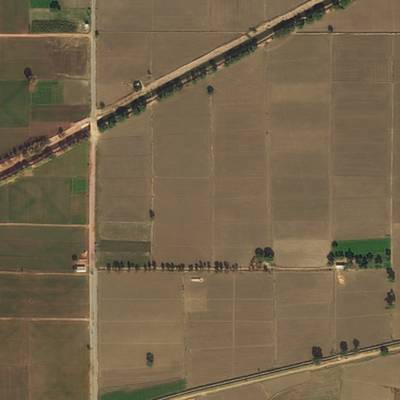

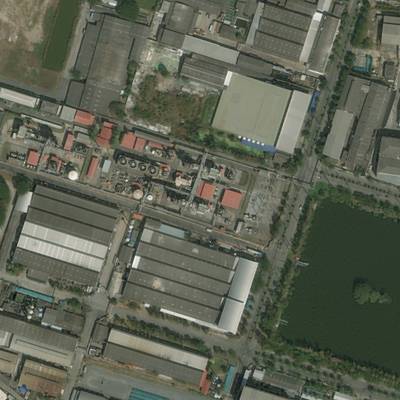

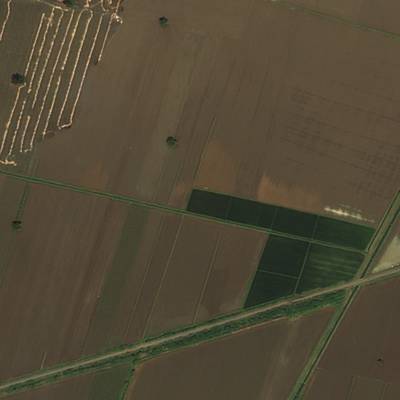

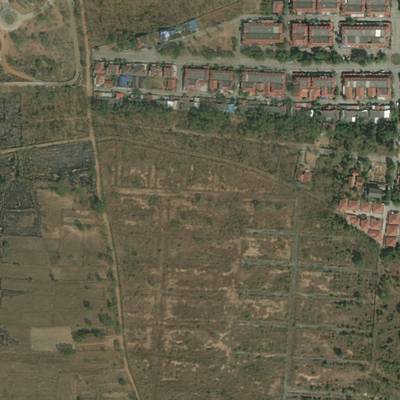

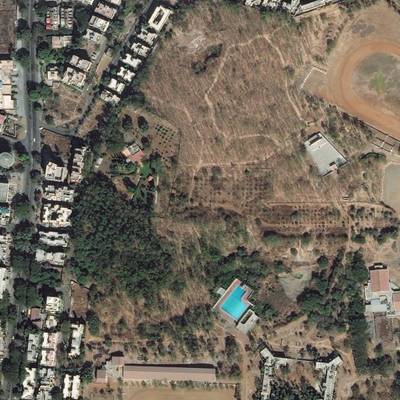

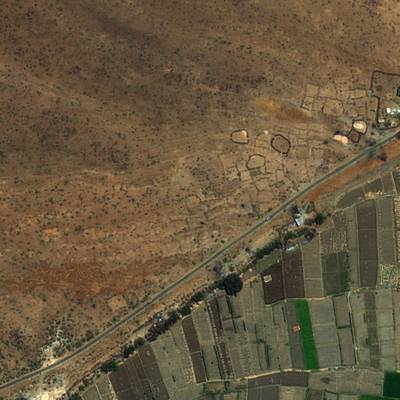

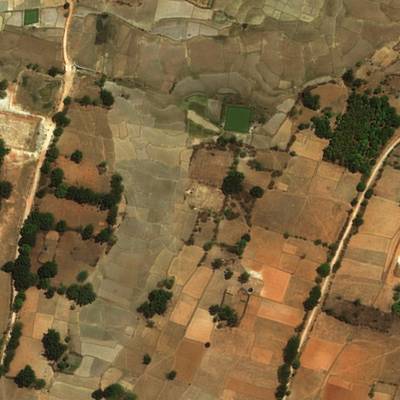

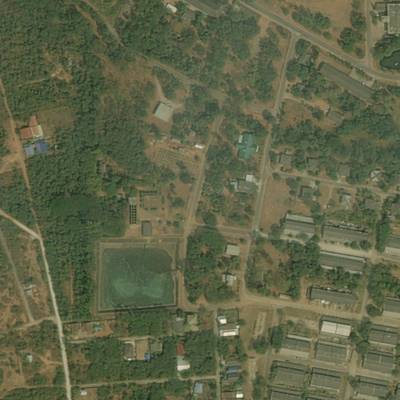

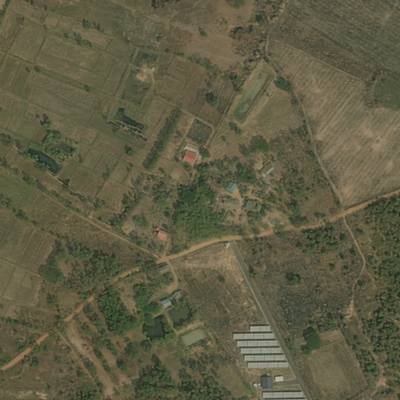

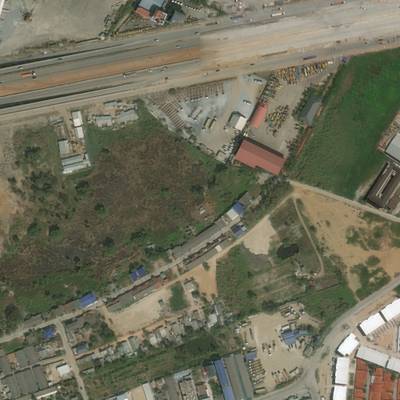

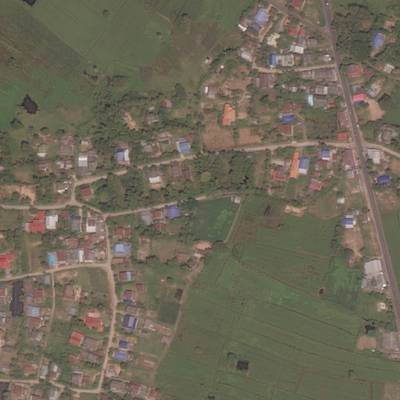

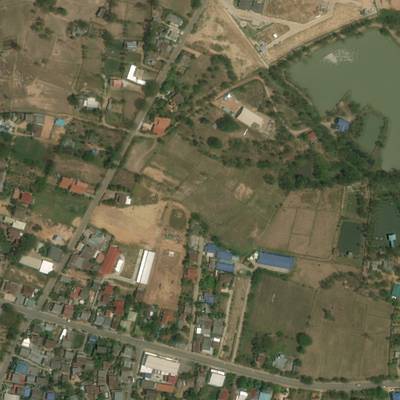

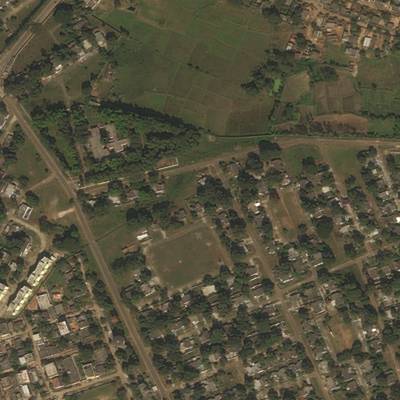

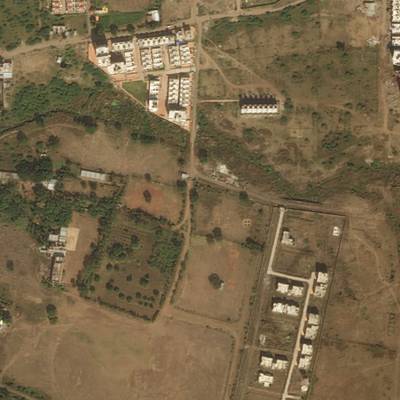

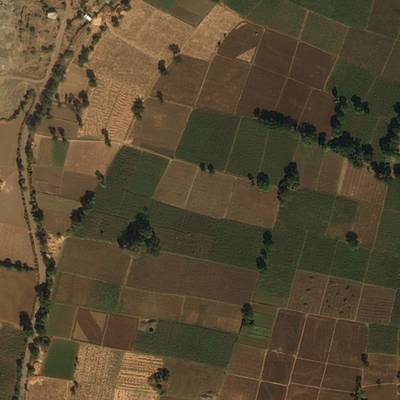



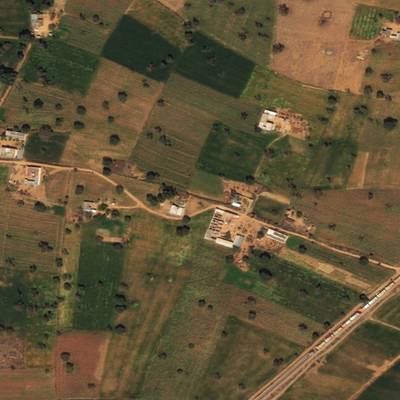

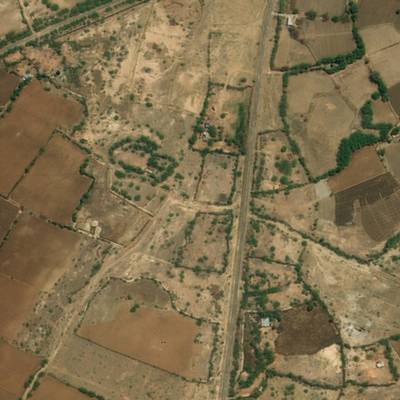

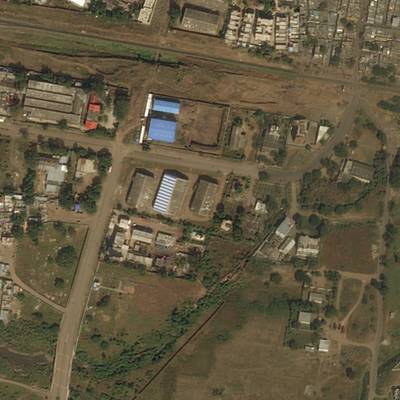

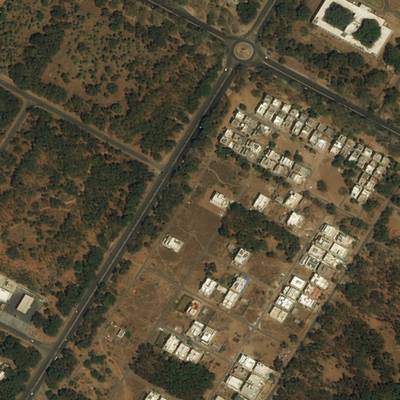

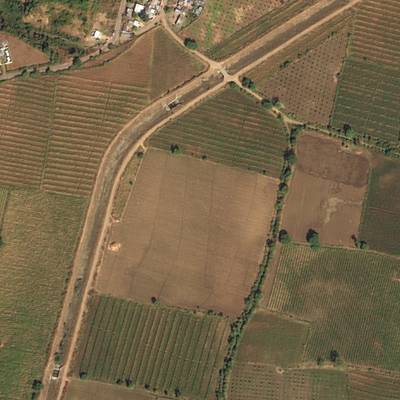

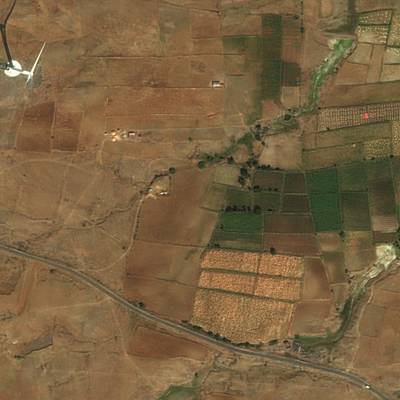

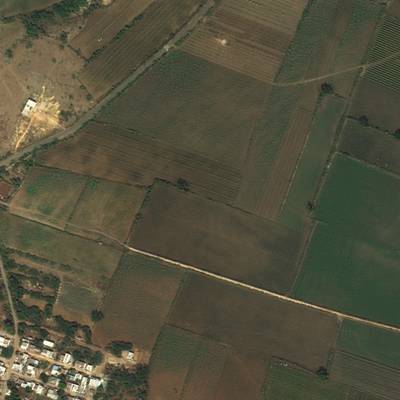

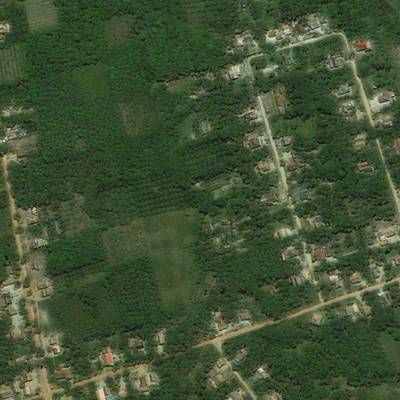

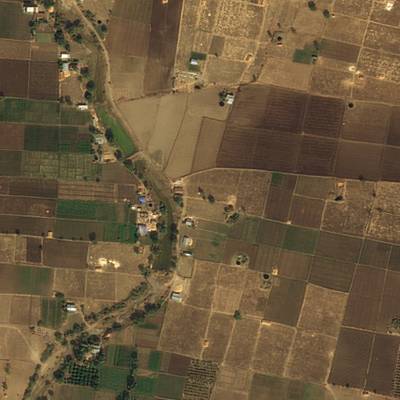
Class balance #
There are 1 annotation classes in the dataset. Find the general statistics and balances for every class in the table below. Click any row to preview images that have labels of the selected class. Sort by column to find the most rare or prevalent classes.
Class ㅤ | Images ㅤ | Objects ㅤ | Count on image average | Area on image average |
|---|---|---|---|---|
road➔ mask | 6226 | 6226 | 1 | 4.24% |
Images #
Explore every single image in the dataset with respect to the number of annotations of each class it has. Click a row to preview selected image. Sort by any column to find anomalies and edge cases. Use horizontal scroll if the table has many columns for a large number of classes in the dataset.
Object distribution #
Interactive heatmap chart for every class with object distribution shows how many images are in the dataset with a certain number of objects of a specific class. Users can click cell and see the list of all corresponding images.
Class sizes #
The table below gives various size properties of objects for every class. Click a row to see the image with annotations of the selected class. Sort columns to find classes with the smallest or largest objects or understand the size differences between classes.
Class | Object count | Avg area | Max area | Min area | Min height | Min height | Max height | Max height | Avg height | Avg height | Min width | Min width | Max width | Max width |
|---|---|---|---|---|---|---|---|---|---|---|---|---|---|---|
road mask | 6226 | 4.24% | 29.33% | 0.15% | 21px | 2.05% | 1024px | 100% | 856px | 83.6% | 22px | 2.15% | 1024px | 100% |
Spatial Heatmap #
The heatmaps below give the spatial distributions of all objects for every class. These visualizations provide insights into the most probable and rare object locations on the image. It helps analyze objects' placements in a dataset.
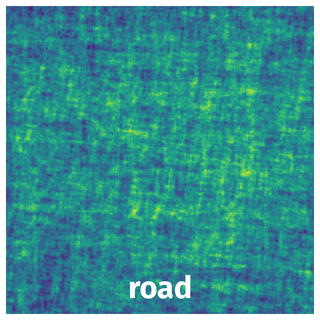
Objects #
Table contains all 6226 objects. Click a row to preview an image with annotations, and use search or pagination to navigate. Sort columns to find outliers in the dataset.
Object ID ㅤ | Class ㅤ | Image name click row to open | Image size height x width | Height ㅤ | Height ㅤ | Width ㅤ | Width ㅤ | Area ㅤ |
|---|---|---|---|---|---|---|---|---|
1➔ | road mask | 877582_sat.jpg | 1024 x 1024 | 1024px | 100% | 1024px | 100% | 15.27% |
2➔ | road mask | 795367_sat.jpg | 1024 x 1024 | 1024px | 100% | 1024px | 100% | 14.36% |
3➔ | road mask | 932794_sat.jpg | 1024 x 1024 | 1024px | 100% | 1024px | 100% | 3.24% |
4➔ | road mask | 188262_sat.jpg | 1024 x 1024 | 78px | 7.62% | 360px | 35.16% | 0.3% |
5➔ | road mask | 12023_sat.jpg | 1024 x 1024 | 1024px | 100% | 1024px | 100% | 2.41% |
6➔ | road mask | 820167_sat.jpg | 1024 x 1024 | 1024px | 100% | 1024px | 100% | 14.66% |
7➔ | road mask | 241296_sat.jpg | 1024 x 1024 | 874px | 85.35% | 1024px | 100% | 10.1% |
8➔ | road mask | 521130_sat.jpg | 1024 x 1024 | 1024px | 100% | 165px | 16.11% | 1.45% |
9➔ | road mask | 536023_sat.jpg | 1024 x 1024 | 1024px | 100% | 1024px | 100% | 8.84% |
10➔ | road mask | 968022_sat.jpg | 1024 x 1024 | 1024px | 100% | 1024px | 100% | 2.84% |
License #
This challenge is governed by DeepGlobe Rules, The DigitalGlobe’s Internal Use License Agreement, and Annotation License Agreement.
Citation #
If you make use of the DeepGlobe 2018 Road Extraction data, please cite the following reference:
@InProceedings{DeepGlobe18,
author = {Demir, Ilke and Koperski, Krzysztof and Lindenbaum, David and Pang, Guan and Huang, Jing and Basu, Saikat and Hughes, Forest and Tuia, Devis and Raskar, Ramesh},
title = {DeepGlobe 2018: A Challenge to Parse the Earth Through Satellite Images},
booktitle = {The IEEE Conference on Computer Vision and Pattern Recognition (CVPR) Workshops},
month = {June},
year = {2018}
}
If you are happy with Dataset Ninja and use provided visualizations and tools in your work, please cite us:
@misc{ visualization-tools-for-deepglobe-road-extraction-dataset,
title = { Visualization Tools for DeepGlobe 2018 Road Extraction Dataset },
type = { Computer Vision Tools },
author = { Dataset Ninja },
howpublished = { \url{ https://datasetninja.com/deepglobe-road-extraction } },
url = { https://datasetninja.com/deepglobe-road-extraction },
journal = { Dataset Ninja },
publisher = { Dataset Ninja },
year = { 2026 },
month = { feb },
note = { visited on 2026-02-27 },
}Download #
Dataset DeepGlobe 2018 Road Extraction can be downloaded in Supervisely format:
As an alternative, it can be downloaded with dataset-tools package:
pip install --upgrade dataset-tools
… using following python code:
import dataset_tools as dtools
dtools.download(dataset='DeepGlobe 2018 Road Extraction', dst_dir='~/dataset-ninja/')
Make sure not to overlook the python code example available on the Supervisely Developer Portal. It will give you a clear idea of how to effortlessly work with the downloaded dataset.
The data in original format can be downloaded here.
Disclaimer #
Our gal from the legal dep told us we need to post this:
Dataset Ninja provides visualizations and statistics for some datasets that can be found online and can be downloaded by general audience. Dataset Ninja is not a dataset hosting platform and can only be used for informational purposes. The platform does not claim any rights for the original content, including images, videos, annotations and descriptions. Joint publishing is prohibited.
You take full responsibility when you use datasets presented at Dataset Ninja, as well as other information, including visualizations and statistics we provide. You are in charge of compliance with any dataset license and all other permissions. You are required to navigate datasets homepage and make sure that you can use it. In case of any questions, get in touch with us at hello@datasetninja.com.


